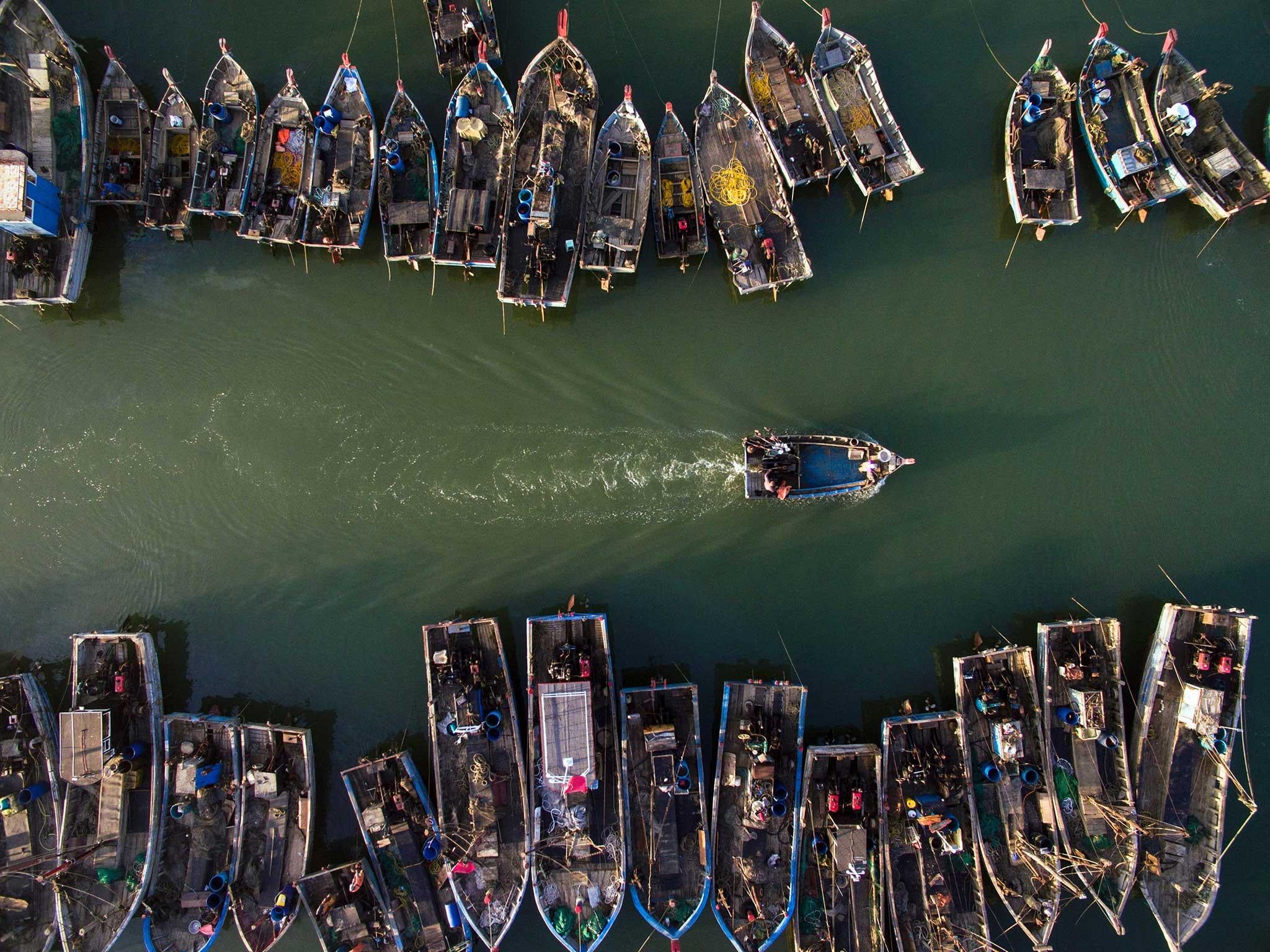World's fishing fleet to catch 25 billion fewer fish a year by 2100 unless more is done to stop climate change
'Reduced catches will most keenly affect developing nations with coastal communities who depend on fishing, but given that the majority of our seafood in the UK is now imported we can expect more expensive seafood options in the future'

Your support helps us to tell the story
From reproductive rights to climate change to Big Tech, The Independent is on the ground when the story is developing. Whether it's investigating the financials of Elon Musk's pro-Trump PAC or producing our latest documentary, 'The A Word', which shines a light on the American women fighting for reproductive rights, we know how important it is to parse out the facts from the messaging.
At such a critical moment in US history, we need reporters on the ground. Your donation allows us to keep sending journalists to speak to both sides of the story.
The Independent is trusted by Americans across the entire political spectrum. And unlike many other quality news outlets, we choose not to lock Americans out of our reporting and analysis with paywalls. We believe quality journalism should be available to everyone, paid for by those who can afford it.
Your support makes all the difference.The world’s fishing fleet will catch an estimated 25 billion fewer fish a year by the end of the century if global warming continues on its current path, scientists have said.
If countries live up to their current pledges to reduce greenhouse gases, the planet’s average temperature is set to rise by about 3.5 degrees Celsius above pre-industrial levels by 2100 – well beyond the point at which climate change produces significantly more dangerous weather conditions.
Rapid ocean warming has already contributed to the collapse of cod fisheries in the Gulf of Maine and other changes in the marine world, the researchers said.
After considering the effects on 892 different species eaten by humans, they concluded that each degree of warming could potentially result in a 3.4 million ton fall in the weight of fish caught every year, they reported in the journal Science.
The global fish catch is currently about 109 million metric tons.
One of the researchers, environmental physicist Dr Thomas Frölicher, of the ETH Zürich University, said there was a clear relationship between greenhouse gases and a reduction in fish catches.
“Changes in ocean conditions that affect fish stocks, such as temperature and oxygen concentration, are strongly related to atmospheric warming and carbon emissions,” he said.
“For every metric ton of carbon dioxide emitted into the atmosphere, the maximum catch potential decreases by a significant amount.”
The effects would vary dramatically between different regions of the world.
For example, fishing boats in the Norwegian Sea might initially see an increase in their catches as the temperature rises.
But the Indo-Pacific region – heavily reliant on fishing as a source of income and food – is projected to lose nearly half of its fisheries if global warming reaches 3.5C.
Professor William Cheung, of the Institute for the Oceans and Fisheries at the University of British Columbia, said: “In some regions, they are really sensitive to this warming. If we move beyond 2C, the levels of impacts on fisheries will increase much more rapidly.
“The populations in coastal communities [of the Indo-Pacific] are strongly dependant on seafood for essential nutrients for their health.
“With that decrease in the size of the potential supply of fish, that might put them at risk of nutritional insecurity. People are strongly dependant on fish for food and their livelihoods.”
Professor Cheung, who is science director of the Nippon Foundation-Nereus Programme, said their research showed the importance of trying to stick to the Paris Agreement on climate change’s ambition to restrict global warming to as close to 1.5C as possible.
This would see the global catch fall by 2.5 per cent, compared to 8 per cent if it hits 3.5C.
In an associated commentary in Science, Dr Elizabeth Fulton, of Tasmania University, wrote the world was still some way off achieving the lower target.
“Current climate pledges under the Paris Agreement do not provide the reductions in greenhouse gas emissions needed to keep temperatures below 2C, let alone 1.5C,” she said.
“But for those people relying on the close to 25 billion seafood meals lost each year if we let temperatures rise by 3.5C, the imperative to act seems clear.
“Humans today are better equipped to make evidence-based decisions than at any point in our collective history, and all that evidence tells us that deferring the decision to act is a costly course to take.”
Bev O’Kane, fisheries scientist at the Marine Conservation Society, called for action.
“The difference between our world heating by 1.5 degrees and 3.5 degrees is stark,” she said.
“It is therefore crucial that commitments to limit temperature rise are followed through.
“Reduced catches and changes of species found in world oceans will most keenly affect developing nations with coastal communities who depend on fishing, but given that the majority of our seafood in the UK is now imported, with bigger changes to global oceans, we can expect fewer fish catches and more expensive seafood options in the future.“
Barry Deas, chief executive of The National Federation of Fishermen's Organisations, said the biggest impact on UK fisheries had been the reduction in the numbers of fish caught, which had seen many species recover significantly.
“We recognise this [climate change] is a major factor for the future, but that is kind of outwith our hands as the fishing industry per se,” he said.
“We don’t dismiss it, but it’s not an immediate concern for us. We aren’t seeing effects that would make us anxious about the immediate future.”
Join our commenting forum
Join thought-provoking conversations, follow other Independent readers and see their replies
Comments